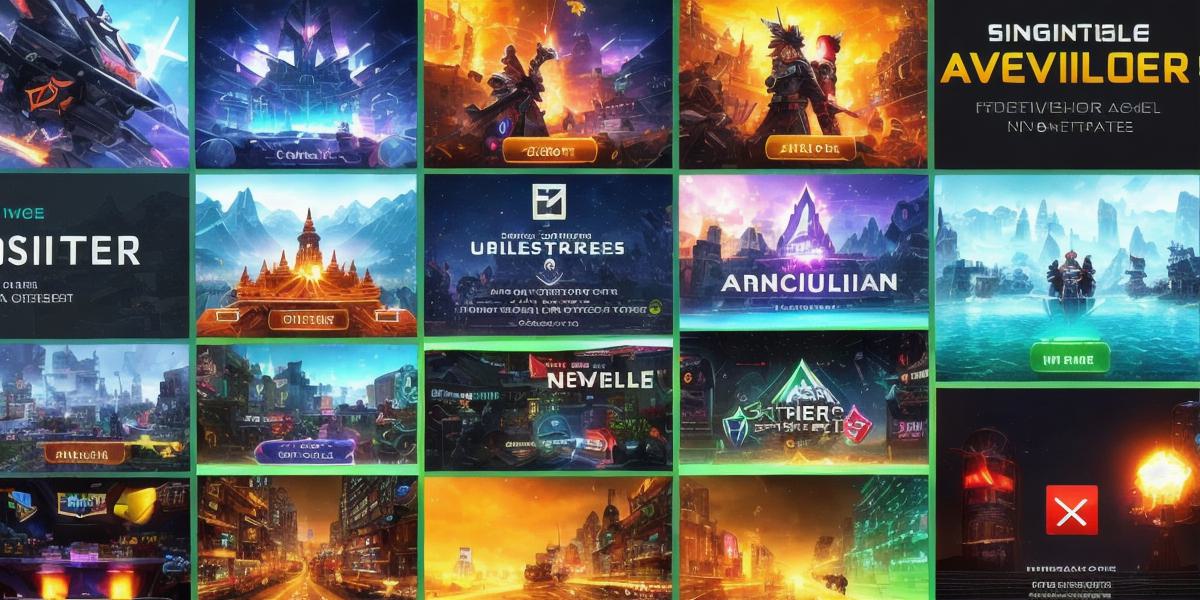Introduction:
NFT (Non-Fungible Token) games are becoming increasingly popular in the gaming industry, and they offer a unique way for players to own and trade digital assets. In this article, we will explore what NFT games are, how they work, and why they are gaining popularity among developers. We will also provide real-life examples of successful NFT games and their impact on the gaming industry.
What are NFT Games?
NFT games are digital games that use blockchain technology to create unique, one-of-a-kind assets that can be bought, sold, and traded. These assets can include in-game items such as weapons, characters, and collectibles, as well as real-world assets such as art, music, and domain names. The key feature of NFT games is that the assets are non-fungible, meaning they cannot be replaced with anything else. This creates a sense of scarcity and value for the assets, which can lead to high demand and prices.
How do NFT Games Work?
NFT games work by using blockchain technology to create a unique digital asset that is linked to a specific game or franchise. When a player purchases an NFT asset, they are essentially buying ownership of that asset, which gives them exclusive rights to use it in the game. These assets can be bought and sold on marketplaces, similar to stocks and commodities.

One of the key benefits of NFT games is that they allow players to own unique, one-of-a-kind assets that cannot be replicated or duplicated. This creates a sense of scarcity and value for the assets, which can lead to high demand and prices. Additionally, NFT games can create new revenue streams for developers by allowing them to monetize their in-game assets through sales and secondary marketplaces.
Real-Life Examples of Successful NFT Games:
There are many successful NFT games that have already been launched, including:
- CryptoKitties – a popular NFT game that allows players to collect and breed unique digital cats. The game has generated over $30 million in revenue and has become one of the most successful NFT games to date.
- Axie Infinity – an NFT game that combines elements of strategy, role-playing, and collecting. Players can buy, sell, and trade unique creatures called Axies, which are linked to the game’s economy.
- NBA Top Shot – an NFT game that allows players to collect and trade unique moments from the NBA, including dunks, blocks, and assists. The game has generated over $200 million in revenue and has become a popular way for basketball fans to connect with their favorite players.
The Impact of NFT Games on the Gaming Industry:
NFT games are having a significant impact on the gaming industry by creating new revenue streams for developers and allowing players to own unique, one-of-a-kind assets. Additionally, NFT games are opening up new opportunities for collaboration between players and creators, as well as allowing for more immersive and engaging gameplay experiences.
Summary:
NFT games are becoming increasingly popular in the gaming industry, and they offer a unique way for players to own and trade digital assets. By using blockchain technology, NFT games create a sense of scarcity and value for the assets, which can lead to high demand and prices. Additionally, NFT games can create new revenue streams for developers by allowing them to monetize their in-game assets through sales and secondary marketplaces. With the success of games like CryptoKitties, Axie Infinity, and NBA Top Shot, it is clear that NFT games are here to stay and will continue to shape the future of gaming.



